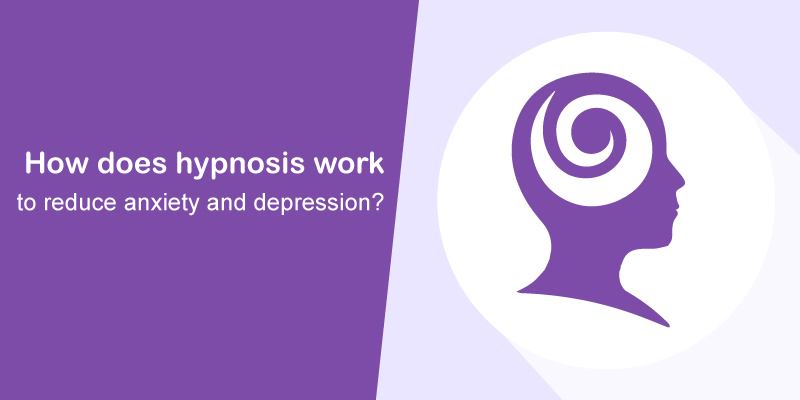

Hypnosis is a well-known and used technique that puts a person into a heightened state of attention and focus. This helps people change their behavior or bad habit that they want to quit but can't. Unlike what's typically shown in popular media and television, people who are in hypnosis aren't zombie-like and sleepy at all; instead, they are in a hypnotic trance state and are extremely-focused and hyper-aware individuals.
Hypnosis is a simple yet complex process where a highly trained therapist/ professional uses therapeutic phrases, words, or techniques to help a patient enter an altered consciousness state. It can also involve guided self-talk, visualization, relaxation, or music. The idea behind hypnosis is that it revolves around altering a person's brainwaves and allowing them to tap into the resources present inside themselves that they cannot control and connect with when fully conscious.
Hypnotherapy is a form of hypnosis that uses supplemental techniques accompanied by hypnosis to aid and treat various symptoms, health conditions, mental issues, and more in a patient. Hypnotherapy is also known as guided hypnosis. It is a form of psychotherapy that uses relaxation and hyper-focused attention, and intense concentration to reach a heightened sense of consciousness. This allows the person to access parts of the mind that are generally left untapped and underutilized, resulting in real changes.
Using hypnotherapy, the therapists use one's mind to alleviate or reduce the number of issues and phobias that plague their patients and clients. It can also be used to break bad habits of the clients like drinking, smoking, overeating, etc. Despite what people might say and believe, hypnosis also has real medical and therapeutic benefits and has often been seen to reduce the symptoms of dementia. But more importantly, hypnosis and hypnotherapy are often effective in treating anxiety and depression in people.
Anxiety is when a person starts feeling uneasy and fearful, resulting in sweating, tension, and an increased heartbeat. People with anxiety disorders usually have anxiety that does not go away. It also interferes with their daily life and leaves the person feeling overwhelmed.
Depression, on the other hand, is a severe mood disorder that affects the way a person thinks, feels, and handles their daily activities. Typically, there are various forms of depression, but some of the most common symptoms of depression include – constant anxiety, sad mood, irritability, loss of interest, difficulty concentrating, difficulty sleeping. Hypnosis is one of the ways that cause the patient and clients with anxiety to ease into a relaxed and calm state.
Other than anxiety, hypnosis is also effective in reducing the symptoms of depression in people. Patients with major depression often were found to have a decreased heart rate variability (HRV). One recent study found that HRV significantly increases hypnosis in people, which also means that the technique could treat depression. It has often been found that hypnosis works best to reduce anxiety when combined with other psychological interventions, exposure therapy, or CBT – cognitive behavioral therapy.
Sherrell, Z.I.A. 2021. Hypnosis-for-anxiety#for-depression. 23 June. Does hypnosis work for anxiety, depression, and fear?. [Online]. [17 February 2022]. Available from: https://www.medicalnewstoday.com/articles/hypnosis-for-anxiety#for-depression
